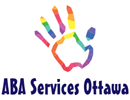What is in a diagnosis? - Mar 30, 2015
Recently I've met with several parents who approach me as "my child has Autism so... ..."
This has led me to consider the value of a diagnosis. While a diagnosis is a great thing to have from the sense that some services can only be attained when there is a diagnosis, and while it causes great discomfort to some who want a diagnosis and can't get it - there is no diagnosis necessary as a way to make a family act.
For me, I assess the behaviour of interest. Whether the child has a diagnosis factors into my consideration, but it is certainly not my starting point. That being said, just because one child holds a diagnosis, it does not mean that the other children in the household don't help create a behaviour problem for the child with a diagnosis. In short, the diagnosis helps focus on particulars, but only just barely.
A family could certainly connect with me and simply state that they were having some difficulty with their child's bedtime routine, or toileting - and I would meet with them free of charge, and propose a plan (a set of goals) following an observation or two and some additional details. A diagnosis is not as pivotal in private practice.
It is important to remember, that there are goals to be worked on with everyone and every child. These goals can be more of something, or less of something. Excesses or deficienies. They are simply processed by me as goals - identified areas to work on and create some training for. Areas in which the family needs more help.
I find coming from that angle, it is easier to speak to parents because there is no blame - there is no targeting one child in particular - and it is simply a series of "finding solutions".
